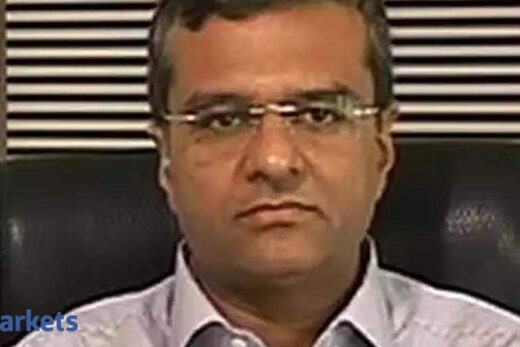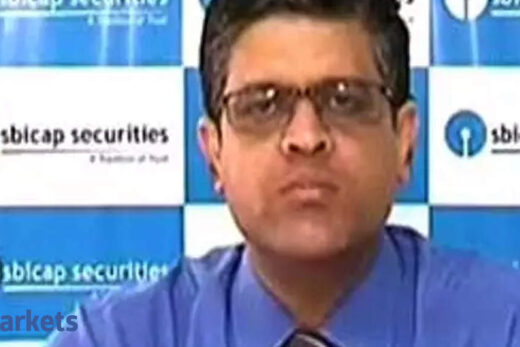ET Now: Today, let us analyse the impact of the second wave and how different it is for your company and for your sector from the first wave?
Ronojoy Dutta: The first wave was relatively shallow as you know but there was hesitancy in the flying public. Even when COVID numbers started going down, there was a lag. Customers were still not sure if is it safe to fly. Do I really need to fly? What we see in the second wave, which is very sharp, is that there is no hesitancy. So, as soon as the second wave started coming down, customers were eager to fly and the numbers started going up. The lag factor totally disappeared in the second wave.
ET Now: How much of the air traffic has normalised to March 2021 levels? I am trying to compare from the beginning of the second wave to now– how much normalisation has happened.
I would not give you IndiGo numbers because we are coming up on earnings soon. I will give you the industry numbers. So, our peak was in February. We were all feeling very bullish and then in March, we started having problems and May was the worst month. So, if you look at the numbers between the peak of February to the trough of May– we went down to about 25%. Since then we have recovered back to about 60-70%. While the decline was very sharp, the recovery also seems to be sharp.
ET Now: If one looks at data of developed markets, it is indicating that almost 85% of the air travel has normalised to pre-COVID levels and by next calendar year, airline industry in developed markets would be back to pre-COVID levels. Do you see the same factor could be at play in India too?
Absolutely. I am very bullish about how quickly the recovery is happening which is why I talked about the lag factor not being there. As COVID declines, we see our traffic is coming up fast. So, yes by 2022, I am pretty sure we will be back to pre-COVID levels. International is a bit of a question mark because we do need to normalise and standardise all the procedures for going from one country to another, that is going to see a lag. But domestic– I have no doubt that we will be back to pre-COVID levels relatively quickly.
ET Now: Unlike last time, no airline has come forward and talked about the layoffs or salary cuts. How should one read into it? Does that mean that airlines have become very efficient or there is no scope to cut cost?
There is one thing that I have learnt from various crisis I have lived through- from 9/11 to couple of airline bankruptcies. It is that in the crisis the two things are absolutely critical. The first is communicate with shareholders, customers, employees. The second one is hold your employees together. So, if we lose our employees, there is very little hope of coming out of the recovery quickly.
We communicate as transparently as we can with them and we did have to do pay cuts and layoff. But, throughout the process we were communicating what our plans are. So, they have held together very well. We have absolutely no plans for further layoffs or pay cuts. It is not necessary at all. So, we value our employee relationships very much. It is one of our pillars of strength and we do have leave without pay programme right now which expires next month. I am anxious to get out of all this and get back to our normal pay structures quickly as we can.
ET Now: What you are confirming to me is that whatever salary cuts or leave without pay emergency measures with IndiGo had in a sense was forced to adopt— they all would be normalised very soon?
Very quickly. Like I said, leave without pay drops off next month and after that we will have to work slowly on the pay front. When we say what is management’s job? It is to take care of customers. It is to take care of shareholders. It is to take care of employees and we will take all of those three responsibilities very seriously. So, in this COVID process we were sincerely looking out for the welfare of our employees when I point to our vaccination programme for example. Along with that we created hospital beds in both Delhi and Bangalore. We created ambulance service at the height of the COVID crisis. So, we were very careful to make sure that the employees recognise how much we care.
ET Now: Given that right now airlines are not flying at their peak capacity, do you see an element of price war happening, where some airlines may decide to go for spot sales and keep pricing lower on trunk routes in order to get their minimum number going, so that they hit their breakeven?
I very much believe in economics being a merciless driver of all decisions so yes, we are all flying less than capacity but the fact is none of us can afford to lose cash. So, we are pricing in such a way and putting in capacity in such a way that there is always cash generated and I do not see anyone sort of not following that line because if you did you would be– sort of going into a self destructive mode. So no, I do not see any destructive price wars happening. I think the government should open up the capacity. We are now as you know at 65% capacity, we desperately need to add capacity. I think it is good for the industry and even more, it is good for the country to have high capacity and therefore I do not see anything destructive going on here. I think the discipline of economics is very much there.
ET Now: You have more than 50% market share, you have the strongest balance sheet, whatever you will decide would be followed by others, what are you planning to decide on pricing and yields?
Our goal here is to get back to full capacity utilisation as quickly as possible. So, when we went into this crisis we asked ourselves what is the path back to recovery and by recovery I mean profitability, and it was very clear that it was not a revenue path, it was a cost path. We had to reduce our cost in such a way that we could have a shot at getting to profitability because after that revenue will come, which says we are not focussing so much on let us squeeze the maximum yields, let us push load factors up, no, we are very much sort of obsessed with adding more capacity because adding more capacity reduces our unit costs. It distributes our fixed cost better. So, our path to profitability is through reduced cost which means more capacity; yields, load factors will follow.
ET Now: We all are hoping and praying and keeping our fingers crossed that we do not see a strong third wave but in case we see a third wave– what is your preparedness?
So, our view on the third wave is that it is inevitable but given the rate at which vaccination is progressing, we also think it will be relatively flat. We are basing our plans around that to the extent that it is an impact of a more shallow third wave. We are keeping our balance sheet very strong. So, the crisis is mostly on the cash front, so a healthy balance sheet is our biggest defence against that and so our balance sheet now has a billion dollars on it so we are fairly well prepared for the third wave and then again it is vaccination. We have vaccinated over 91% of our staff and I am hoping that all private enterprises are pushing for vaccination of their employees so that the country is well prepared for the third wave.
ET Now: Slightly forward looking, if you have to give us a sense on way –holiday and travel booking could move for airlines sector and for Indigo– let us say in October, closer to Diwali, are people already blocking their tickets for the Diwali, Dussehra holidays?
Excellent question, the short answer is- it is too early to tell. But, a slightly long-ish answer is let us compare it to last year. Last year Diwali was okay, it was not great. In fact the traffic improved stronger after Diwali as I said February was the strongest month. So, in all of this what we are seeing is seasonality is a less of a factor, it is being overwhelmed by the Covid numbers and February is typically not one of the strongest month but last February was very good because Covid was so low. We see the same thing here, we watch the Covid numbers very carefully, although every year we pay attention to the seasonal factors-this year probably it is going to be less of an issue. I am hoping Diwali will be strong but we will have to wait and see, it is too early to know.



